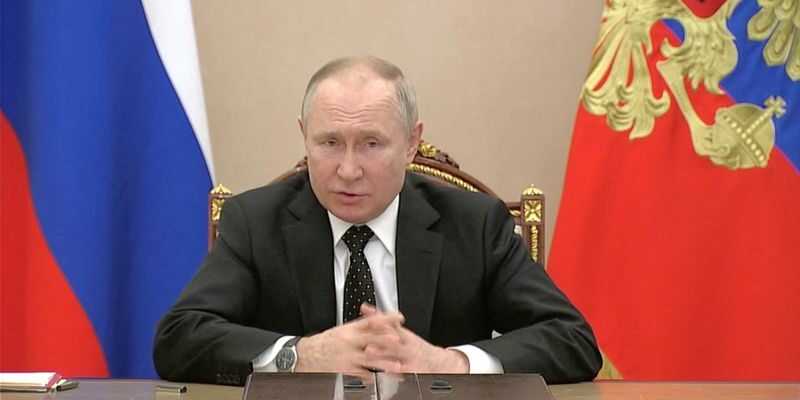KIEV (Reuters) – Vladimir Putin on Sunday ordered Russian deterrent forces, which include a nuclear component, to be put on alert on the fourth day of Moscow’s massive military offensive against Ukraine, whose forces continue to resist.
The Russian president justified his decision by what he believed to be aggressive declarations by major NATO member countries and by the severe financial sanctions that the West had decided to impose on Russia.
At the same time, the Ukrainian presidency announced the holding, without preconditions, of Russian-Ukrainian talks on the border between Ukraine and Bilorussia, after having refused at the beginning of the day negotiations on the territory of Bilorussia, an ally of Moscow. Israel has also offered to mediate in an attempt to obtain a cessation of hostilities.
In Brussels, the European Ministers of the Interior and of Justice met to organize and coordinate the reception of refugees, who are already nearly 370,000 according to the UNHCR (United Nations Agency for Refugees). The heads of EU diplomacy will meet for their part at 6:00 p.m. (5:00 p.m. GMT) to decide on new sanctions against Moscow.
Among the measures being considered is the closure of European Union airspace to Russian planes and airlines, which many European countries, including Germany, France and Italy, have already anticipated.
The United States, the European Commission, France, Germany, Italy, the United Kingdom and Canada announced on Saturday evening in a joint statement new financial sanctions potentially very disabling for the Russian economy, aimed at excluding several Russian banks in the SWIFT international payment network and deprive the Russian central bank of part of its large international currency reserves. Japan has said that it associates itself with these measures.
Speaking on Russian television, Vladimir Putin said the severity of these sanctions and the aggressive statements of “major NATO member countries” justified his decision to place Russian deterrent forces, which include the nuclear arsenal, on alert. .
“As you can see, not only Western countries are taking unfriendly measures against our country in the economic sphere – I mean the illegal sanctions that everyone knows very well – but senior officials from major NATO countries allow themselves to make aggressive statements about our country,” said the head of the Kremlin.
The White House has accused the Russian president of fabricating threats and NATO Secretary General Jens Stoltenberg has denounced dangerous and irresponsible behavior.
On the ground, the Russian army made a breakthrough Sunday morning in Kharkiv, in the north-east of the country, but the regional governor assured that the Ukrainian forces had completely regained control of Ukraine’s second city.
In Kiev, still in the hands of the Ukrainian government, a curfew was in force until Monday morning. Ukrainian forces repelled Russian attacks there after a “hard night”, according to President Zelensky.
(Reuters editorials; edited by Jean-Stphane Brosse)
by Maria Tsvetkova and Aleksandar Vasovic
